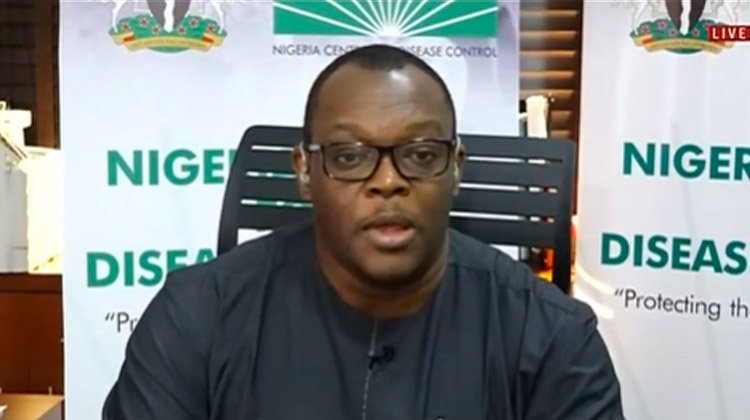
•Virologists raise the alarm, call for vigilance at entry points
The Federal government has placed the Federal Ministry of Health’s Port Health Services at the nation’s borders on red alert following Ghana’s confirmation of its first outbreak of the highly infectious Marburg virus.
This is just as medical experts said Nigeria was at high risk of the virus.
The World Health Organisation confirmed the outbreak on July 17 after two unrelated people died after testing positive for the virus.
The two patients from the southern Ashanti region showed symptoms including diarrhoea, fever, nausea, and vomiting, the WHO said.
Marburg is a highly infectious viral hemorrhagic fever in the same family as the Ebola virus disease and has no vaccine but supportive care – rehydration with oral or intravenous fluids – and treatment of specific symptoms, improve survival.
According to WHO, Marburg is transmitted to people from fruit bats and spreads among humans through direct contact with the bodily fluids of infected people, surfaces, and materials.
It is only the second time the disease has been detected in West Africa.
The PUNCH reports that Guinea confirmed a single case in an outbreak that was declared over on September 16, 2021, five weeks after the initial case was detected.
Previous outbreaks and sporadic cases of Marburg in Africa have been reported in Angola, the Democratic Republic of the Congo, Kenya, South Africa, and Uganda.
Speaking in an exclusive interview with The PUNCH on Tuesday, the Director-General of the Nigeria Centre for Disease Control, Dr. Ifedayo Adetifa, said a risk assessment had been conducted and the country is at moderate risk of the disease.
Adetifa said, “Earlier today (Tuesday), we conducted a risk assessment, done by the NCDC experts and other partners in the country. Our assessment shows that we are at moderate risk. Of course, we don’t share direct risk with Ghana.
“Unlike COVID-19, for you to transmit Marburg, you need to be sick, even if you can never say never. If you are that ill, you are unlikely to be on a plane because the port health services are on general alert to identify people that are sick.
“Port health is part of this intervention, not just for Marburg and even monkeypox. We are at alert, although not the same level as we have for COVID-19.”
Speaking in a separate interview with The PUNCH, a Professor of Medical Virology at the College of Medicine, University of Lagos, Prof. Sunday Omilabu, said Nigeria was at high risk of the disease because of its proximity to Ghana.
“Nigeria is at risk because of its proximity to Ghana. The risk is high. We are at very great risk because there is an intermingling between the two countries,” Omilabu, who is also a member of the Lagos State Emergency Operations Centre, said.
Experts advise govt
Also, a Professor of Public Health, Dr. Tanimola Akande, said, “Nigeria is at risk knowing the closeness of Ghana to Nigeria and daily massive movement of people across the two countries.”
On his part, a Medical Virologist and Immunologist at the Adeleke University, Ede, Osun State, Dr. Oladipo Kolawole, said preventive measures against Marburg virus infection are not well defined.
“Although, one of the ways to protect against infection is by avoiding fruit bats (Rousettus aegyptiacus), and sick non-human primates; another way is awareness. This can lead to earlier and stronger precautions against the spread of the Marburg virus among both family members and healthcare providers.
“Improving genomic surveillance and the use of diagnostic tools is another priority of preventive measures we should be looking into,” Kolawole said.
The Nigerian Medical Association also called for immediate containment measures at the entry points as well as increased awareness of the disease.
NMA reacts
The NMA President, Dr. Uche Ojinmah said, “There should be increased vigilance and surveillance at the entry points. I expect that by now, the Federal Government through the Ministry of Health or the NCDC should have made a statement concerning the flow of immigrants from the affected nation.”
When contacted on the country’s preparedness for the disease, the Deputy Director, Media and Public Relations, Federal Ministry of Health, Ahmadu Chindaya, referred our correspondent to the NCDC.





